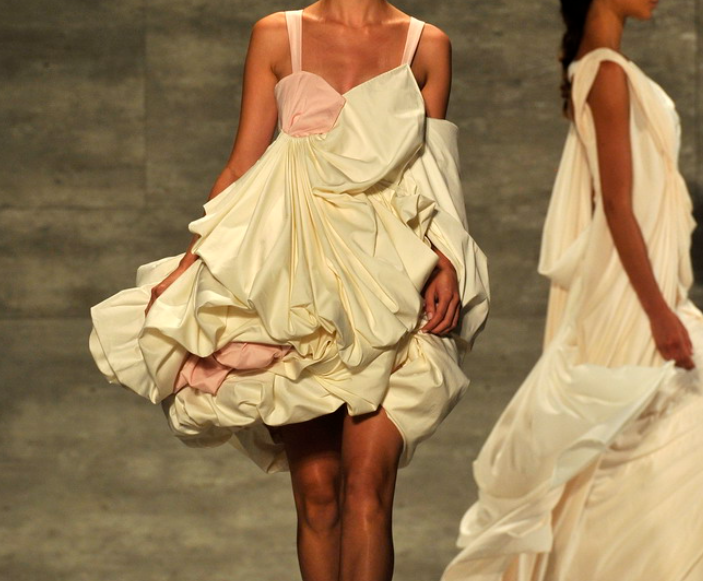
Gabrielle Chanel, one of fashion's most talented designers, started out in a hat shop, but she was the first to wear trousers at a time when women could only wear skirts.
Her good taste is derived from her rich inner world, not from the external evaluation of her.
The designer Jacquemus, once a fire, was also a rural family in southern France, so poor in design that she dared not sew two more pockets for her clothes, just to save money on fabric.
He stands out from other designers precisely because he sticks to his design concept from beginning to end. He is not only not affected by the outside world, but also dares to influence the outside world, taking his design to the door of the fashion week to promote himself, step by step to the present.
The rich inner world has formed their unique taste. Taste, in turn, helped them create wealth.
In the era of Gabrielle Chanel, the realization of supplies may need a lot of chance. Today, on the Internet, you will find thousands of people who have made money from their taste.The upper class mindset.
In fact, the "good taste" that the author of "Poor with Taste" talks about has something in common with the mindset of the upper class.
The most classic example is the late Gianni Agnelli, chairman of Fiat Group, as an old money, he is the owner of Ferrari, Maserati and other supercars belonging to the group's business magnate.
But all he does is dress casually. Wear your tie askew, wear your watch over your armhole, wear your suit with loafers... These combinations were originally made by him, and later became a symbol of whether Italian men dressed in good taste.
Another example is the Trump family, the Kennedy family, these famous old money in American history, dressing in private has always been basic, comfortable and generous is the most important.
In his book Style, the sociologist Paul Forsell writes about something very similar to Poor With Taste: "Taking pains to be scrupulously neat is a sign of anxiety about slipping down one's social ladder, or of caring too much about the opinions and opinions of others...... A very standard tie knot and worrying too much about getting your clothes delivered to the dry cleaning will give you away as a person who lacks confidence."
In other words, people who are truly rich, because they are never short of money, do not have any manifest desire for material things or to be rich. They are more interested in exploring the inner spirit, making friends or exploring the wider world.
They are less active in finance and more active in the arts or politics. The common feature of these two industries is that they burn money, but they are very able to meet people's needs for the inner spirit and the yearning to change the world.
The old money class, in fact, once had a more appropriate term, called the "leisure class." The greatest feature of the rich is not grandeur, nor advanced food and clothing, but a lot of time.
They spend their time racing horses, giving parties of all kinds, admiring works of art, watching operas, talking and reading. Much of the development of art in European history has to do with the preferences of the wealthy.
Maslow's Hierarchy of Needs theory is a very famous social science theory, which holds that people's basic needs can be divided into five levels: physiological, security, social, respect and self-actualization needs.
In fact, the mindset of the upper class is a pure pursuit of self-actualization after the other four basic needs have been satisfied. And this pursuit, which actually happens to form their lifestyle, has little to do with money itself.
Gabrielle Chanel's former rival, Schiaparelli, once said: "The true luxury is not in the amount of money or extravagance, but in the ability to get rid of vulgarity."
So, what is taste? For the wealthy, taste can be profligate, but choose to use money to devote to charity, promote social justice, women's progress. Just like some celebrities and rich people in the epidemic, they donated money and materials, relying on their personal connections to collect materials, not for personal gain, just to make the world a better place.
For more people, taste is to firmly pursue their own career, always with curiosity about the world, and carefully live their own every moment.
At the end of the book "Poor with Taste," the author writes, "What we really need to learn is to know how to feel our own abundance, how to appreciate what we have, and be grateful." Because we have these things, we don't have to feel sorry for what we don't have, and we don't have to feel poor because of it."
You know, inner wealth, is the most tasteful symbol.

